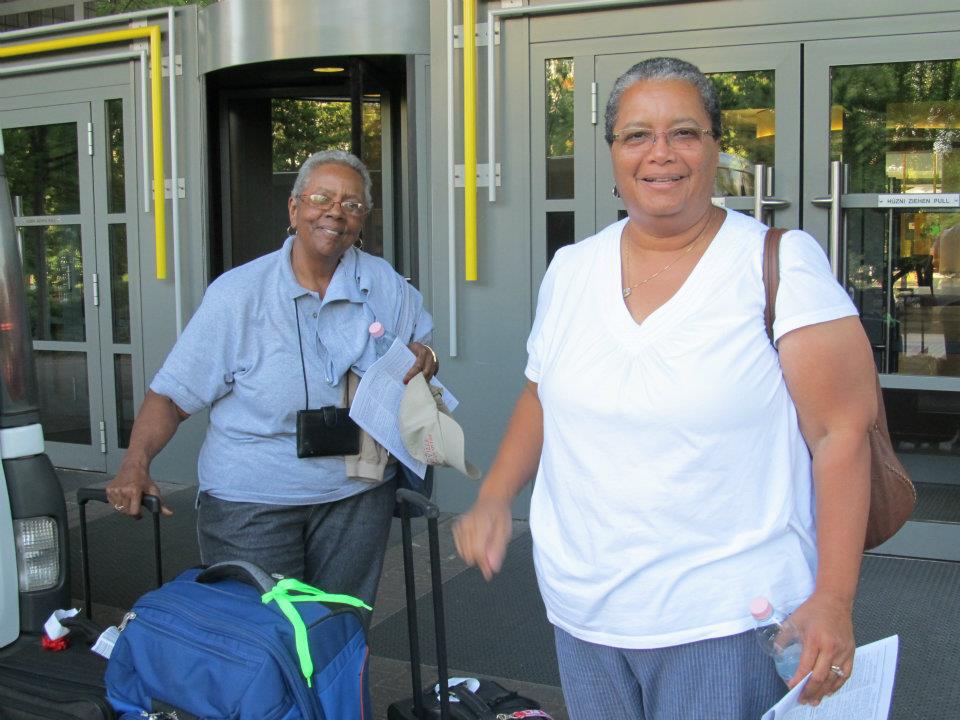
On July 8, Richmond organizer Cathy Woodson and Virginia Organizing State Governing Board Treasurer Jay Johnson will travel to Hungary to give a presentation on community organizing. Jay will primarily be discussing the role of volunteers in community organizing efforts and sharing her life experiences as a minority person in American society. Cathy will also be sharing her experiences in organizing, leadership development and anti-oppression work as a person of color working in the nonprofit sector in the U.S. We asked Cathy and Jay some questions about their upcoming trip and here’s what they had to say:
What is most exciting about your visit?
Jay: It will be my first trip to Europe – that’s thrilling in itself! – the very reality is that I am going to visit a number of what was formerly called the eastern European countries where we will work with people who are fairly new to the concept of citizen activism.
Cathy: Like Jay, this is my first time traveling to Europe and it’s especially exciting since I’ve met several leaders from Hungary and Slovakia. I’m also excited about the opportunity to talk with community leaders and visit organizations working in these countries.
What do you hope to accomplish?
Jay: Hopefully we will be able to engage with some of the Roma people, particularly in Bulgaria where we will spend the most time in that community, and discuss strategies for their becoming more accepted as active participants in the larger society.
Cathy: I’m interested in listening to the challenges facing the Roma people as well as other marginalized communities; sharing my professional and community experiences with a focus on identifying the challenges to working across differences in order to focus on building the quality of life for all peoples. I also want to share success stories in order to empower the leadership.
What do you hope to learn?
Jay: I hope to learn more about what steps people have taken/are taking to engage more citizens as these countries have moved from communism to democracies. I want to understand more about the cultures of the various ethnicities and what has been done to bring them together. In most of these countries several languages are spoken. It will be interesting to discover the origin and missions of those organizations involved in the process of helping multi-ethnic communities communicate.
Cathy: I want to learn what communities think they need in leadership development that will engage the diverse communities in strengthening their society. I’d like to learn what’s creating barriers to working together and the impact history is having on the political, economic, social and environmental challenges today. I want to learn more about the Roma people and the challenges they are facing today, be encouraging to their leaders and share my personal story of empowerment.
What prompted the visit/presentation?
Jay: I was asked to consider going because my experience of growing up during segregation in this country parallels the Roma experience in the countries we will visit. The hope is that Cathy and I might be more acceptable to work with the Roma community out of this communality of life experiences. It also seemed a good idea to include a volunteer among the U.S. group because volunteering is a unique concept to newly emerging democracies.
Cathy: I was encouraged to consider taking this experience as part of my professional development and sharing my experiences working with communities of color and other diverse groups. As a woman of color, I may be able to give a different perspective that is not from a media-driven portrayal of African Americans.
Why is organizing important in any culture, nation, or community?
Cathy: I’ve learned that a strong democratic society needs citizens to be involved on different levels. People know the needs of their communities and can use their beliefs and values to build a stronger society for the common good. To live in a democratic society is a call for people to lead, sharing values and beliefs that promote equality, shared leadership, and focus on what strengthens human rights, freedoms, and justice for all.




